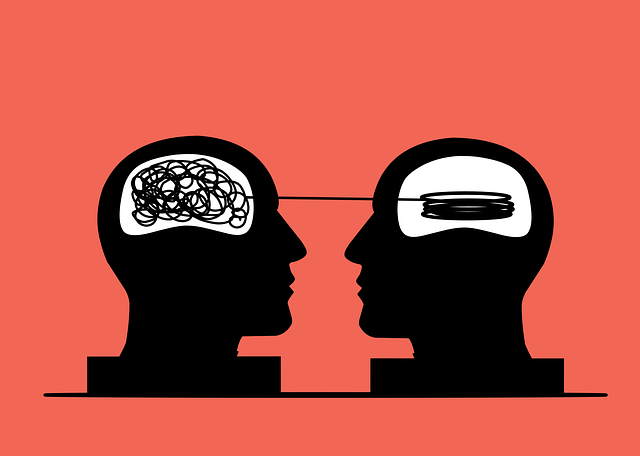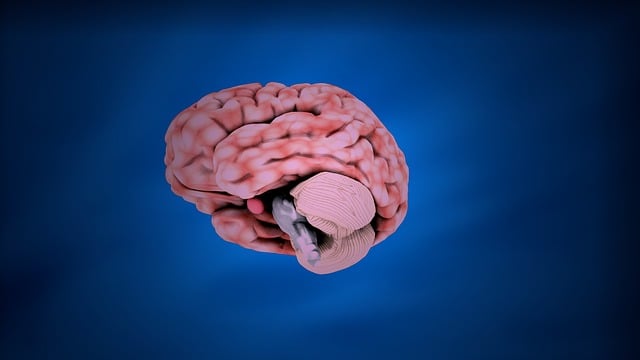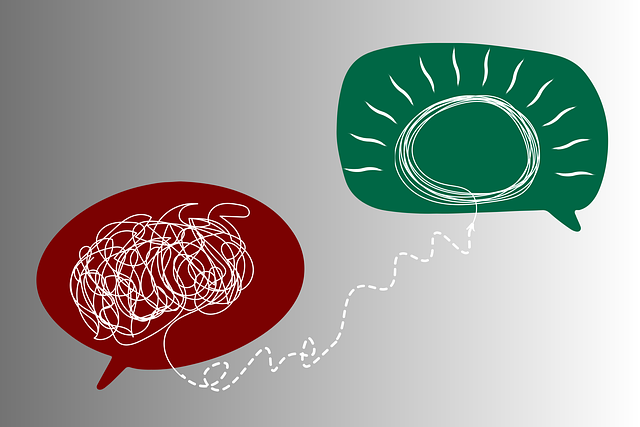Depression is a global concern, but early intervention through Denver EMDR Certified Therapy offers hope. This innovative approach combines Eye Movement Desensitization and Reprocessing (EMDR) with cultural sensitivity and Mental Wellness Journaling to treat depression and trauma effectively. By reprocessing traumatic memories and fostering emotional insights, individuals gain resilience and prevent depressive episodes. Integrated lifestyle changes, such as exercise, meditation, and social skills training, reinforce mental well-being. Cognitive Behavioral Techniques (CBT), including EMDR, target negative thought patterns, while Mental Wellness Coaching provides practical tools for self-care. Building cultural competency ensures diverse patients receive sensitive care. Ultimately, Denver EMDR Certified Therapy equips individuals with the resources to navigate life's challenges with emotional stability and enhanced mental health.
Depression is a prevalent and serious mental health issue, yet it’s preventable. This article explores a multi-faceted approach to safeguarding your mental well-being, featuring strategies from leading experts in Denver EMDR Certified Therapy. We’ll delve into understanding depression’s subtle signs and symptoms, empowering you with evidence-based techniques like cognitive behavioral therapy and lifestyle adjustments known for building resilience. Discover how these holistic methods can help prevent depressive episodes and promote lasting mental health.
- Understanding Depression: Recognizing Signs and Symptoms
- Denver EMDR Certified Therapy: A Powerful Tool for Healing
- Lifestyle Changes to Boost Mental Well-being
- Cognitive Behavioral Techniques for Depression Prevention
- Building Resilience: Strategies for Long-term Mental Health
Understanding Depression: Recognizing Signs and Symptoms

Depression is a complex mental health disorder that impacts millions worldwide. Recognizing its signs and symptoms is the first step towards prevention and effective treatment. While it may present differently in each individual, common indicators include persistent feelings of sadness, loss of interest or pleasure in activities once enjoyed, changes in appetite and sleep patterns, fatigue, difficulty concentrating, and, in severe cases, thoughts of death or suicide.
In Denver, EMDR (Eye Movement Desensitization and Reprocessing) Certified Therapy has emerged as a powerful tool in addressing depression. This therapeutic approach, coupled with a culturally sensitive mental healthcare practice that incorporates Mental Wellness Journaling Exercises, can help individuals gain insights into their emotions, process traumatic experiences, and build resilience. Additionally, engaging in regular self-care activities like journaling fosters self-awareness, enhances confidence, and serves as a valuable preventive measure against depressive episodes.
Denver EMDR Certified Therapy: A Powerful Tool for Healing

Denver EMDR Certified Therapy has emerged as a powerful tool in the arsenal of mental health professionals, offering profound benefits for those dealing with depression and trauma. This innovative approach leverages Eye Movement Desensitization and Reprocessing (EMDR) techniques to help individuals process difficult memories and emotions. By stimulating specific brain processes during therapy sessions, Denver EMDR Certified therapists enable clients to overcome barriers that may be holding them back from full recovery.
Integrating this method with principles of emotional intelligence and mental health awareness, the therapy empowers patients to develop coping mechanisms that are both effective and lasting. Through EMDR, individuals can re-wire their brains to respond differently to past traumatic events, fostering a sense of resilience and improved overall well-being. This holistic approach, combined with mind over matter principles, ensures a more comprehensive and transformative experience for those seeking depression prevention strategies.
Lifestyle Changes to Boost Mental Well-being

In the pursuit of mental well-being, lifestyle changes play a pivotal role. Incorporating regular physical activity, maintaining a balanced diet, and prioritizing quality sleep are fundamental strategies that can significantly impact depression prevention. These simple yet powerful habits not only boost energy levels but also enhance overall mood. For instance, engaging in activities like yoga or meditation, which are backed by research, can be incredibly effective in managing stress and promoting emotional balance, especially when combined with Denver EMDR Certified Therapy for enhanced mental health support.
Moreover, fostering strong social connections and practicing empathy building strategies, such as effective communication and conflict resolution techniques, contribute to a positive mindset. Managing conflicts constructively and regulating emotions effectively are essential skills that can be learned and strengthened over time. These practices create a supportive network, reducing feelings of isolation and promoting resilience against depression. By integrating these lifestyle changes alongside professional support, individuals can navigate life’s challenges with greater ease and emotional stability.
Cognitive Behavioral Techniques for Depression Prevention

Cognitive Behavioral Techniques (CBT) have emerged as a powerful tool in depression prevention and treatment. This evidence-based approach focuses on identifying and modifying negative thought patterns and behaviors that contribute to depressive episodes. By challenging distorted thinking and promoting healthier cognitive processes, CBT enables individuals to develop coping strategies that enhance their resilience against depression.
In Denver, EMDR (Eye Movement Desensitization and Reprocessing) Certified Therapy has gained recognition as an effective form of CBT for depression prevention. This innovative therapy assists individuals in processing traumatic memories and past experiences that may be contributing factors to their depressive symptoms. Combining cognitive restructuring with bilateral stimulation techniques, such as eye movements, EMDR helps clients reprocess distressing memories, reducing their emotional impact and fostering mental wellness. Additionally, Mental Wellness Coaching Programs and Social Skills Training can complement individual therapy by providing practical tools for self-care practices, enhancing interpersonal relationships, and promoting a supportive network that contributes to overall well-being.
Building Resilience: Strategies for Long-term Mental Health

Building resilience is a key strategy for long-term mental health and preventing depression. This involves developing coping mechanisms that can help individuals navigate life’s challenges with greater ease. Denver EMDR Certified Therapy offers effective tools to foster resilience, such as teaching mindfulness practices, encouraging healthy lifestyle habits, and promoting self-care routines. These strategies empower people to better manage stress and emotional triggers, which are often at the root of burnout prevention and depression prevention efforts.
Additionally, enhancing cultural competency among healthcare providers plays a significant role in mental health support. Healthcare Provider Cultural Competency Training equips professionals with the skills to understand and address diverse patient needs, ensuring that everyone receives culturally sensitive care. By combining these approaches, individuals can build resilience, prevent burnout, and safeguard their mental well-being over time.
Depression prevention is a multifaceted approach that combines understanding, therapy, lifestyle changes, and cognitive techniques. As discussed, recognizing signs early and seeking help from professionals like Denver EMDR Certified Therapists can significantly aid in recovery. Additionally, adopting positive lifestyle changes and building resilience can promote long-term mental health. By integrating these strategies into daily life, individuals can effectively manage depression and enhance their overall well-being.














